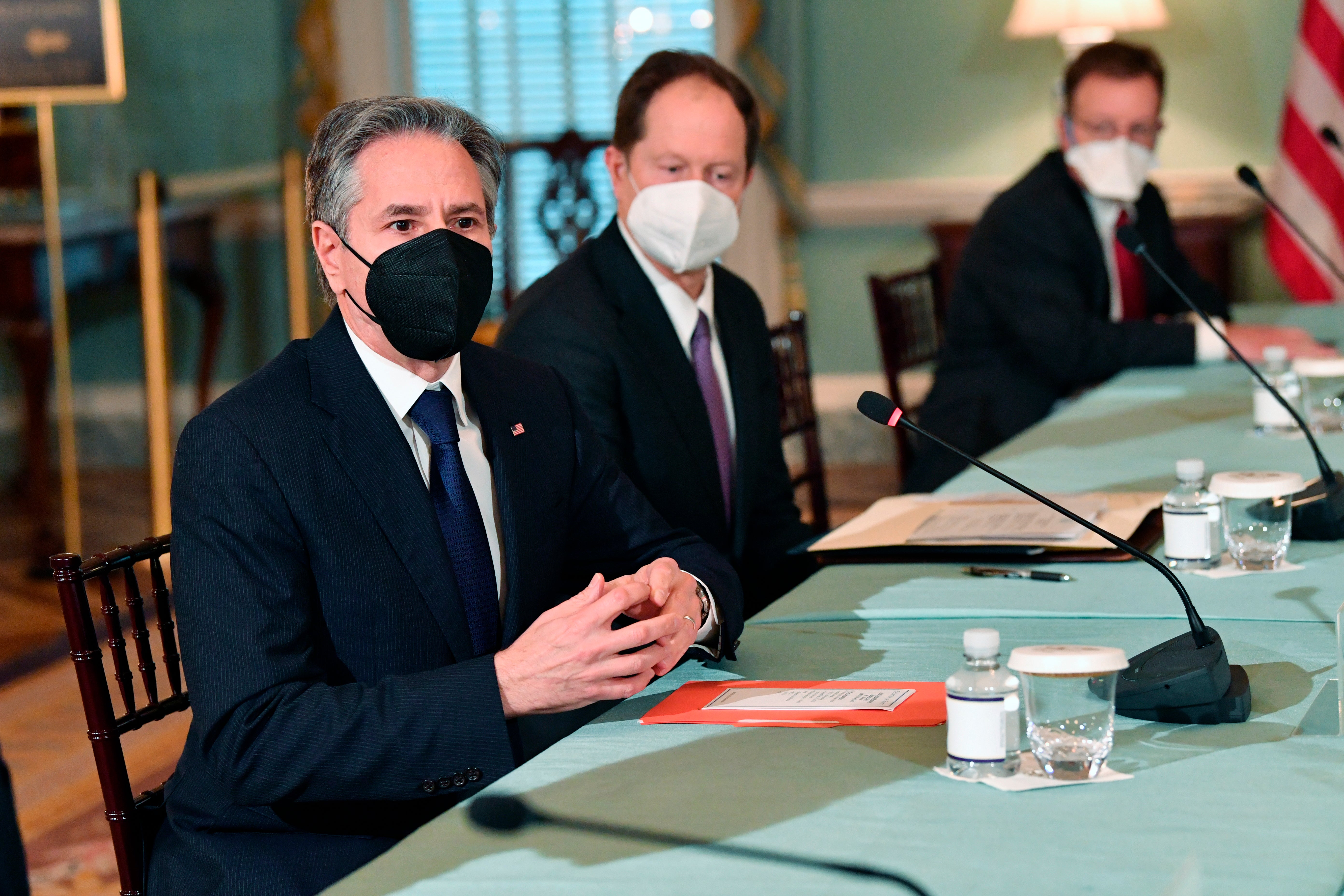US grants sanctions relief to Iran as nuke talks in balance
The Biden administration is restoring some sanctions relief to Iran’s atomic program as talks aimed at salvaging the languishing 2015 nuclear deal enter a critical phase

Your support helps us to tell the story
From reproductive rights to climate change to Big Tech, The Independent is on the ground when the story is developing. Whether it's investigating the financials of Elon Musk's pro-Trump PAC or producing our latest documentary, 'The A Word', which shines a light on the American women fighting for reproductive rights, we know how important it is to parse out the facts from the messaging.
At such a critical moment in US history, we need reporters on the ground. Your donation allows us to keep sending journalists to speak to both sides of the story.
The Independent is trusted by Americans across the entire political spectrum. And unlike many other quality news outlets, we choose not to lock Americans out of our reporting and analysis with paywalls. We believe quality journalism should be available to everyone, paid for by those who can afford it.
Your support makes all the difference.The Biden administration on Friday restored some sanctions relief to Iran’s atomic program as talks aimed at salvaging the languishing 2015 nuclear deal enter a critical phase.
As U.S. negotiators head back to Vienna for what could be a make-or-break session, Secretary of State Antony Blinken signed several sanctions waivers related to Iran’s civilian nuclear activities. The move reverses the Trump administration’s decision to rescind them.
The waivers are intended to entice Iran to return to compliance with the 2015 deal that it has been violating since former President Donald Trump withdrew from the agreement in 2018 and re-imposed U.S. sanctions. Iran says it is not respecting the terms of the deal because the U.S. pulled out of it first. Iran has demanded the restoration of all sanctions relief it was promised under the deal to return to compliance.
Friday’s move lifts the sanctions threat against foreign countries and companies from Russia, China and Europe that had been cooperating with non-military parts of Iran’s nuclear program under the terms of the 2015 deal, known as the Joint Comprehensive Plan of Action, or JCPOA.
The Trump administration had ended the so-called “civ-nuke” waivers in May 2020 as part of its “maximum pressure” campaign against Iran that began when Trump withdrew the U.S. from the deal in 2018, complaining that it was the worst diplomatic agreement ever negotiated and gave Iran a pathway to developing the bomb.
As a presidential candidate, Joe Biden made a U.S. return to the nuclear deal a priority, and his administration has pursued that goal but there has been little progress toward that end since he took office a year ago. Administration officials said the waivers were being restored to help push the Vienna negotiations forward.
“The waiver with respect to these activities is designed to facilitate discussions that would help to close a deal on a mutual return to full implementation of the JCPOA and lay the groundwork for Iran’s return to performance of its JCPOA commitments,” the State Department said in a notice to Congress that announced the move.
“It is also designed to serve U.S. nonproliferation and nuclear safety interests and constrain Iran’s nuclear activities,” the department said. “It is being issued as a matter of policy discretion with these objectives in mind, and not pursuant to a commitment or as part of a quid pro quo. We are focused on working with partners and allies to counter the full range of threats that Iran poses."
A copy of the State Department notice and the actual waivers signed by Blinken were obtained by The Associated Press.
The waivers permit foreign countries and companies to work on civilian projects at Iran's Bushehr nuclear power station, its Arak heavy water plant and the Tehran Research Reactor. Former Secretary of State Mike Pompeo had revoked the waivers in May, 2020, accusing Iran of “nuclear extortion” for continuing and expanding work at the sites.
Critics of the nuclear deal who lobbied Trump to withdraw from it protested, arguing that even if the Biden administration wants to return to the 2015 deal it should at least demand some concessions from Iran before up front granting it sanctions relief.
“From a negotiating perspective, they look desperate: we’ll waive sanctions before we even have a deal, just say yes to anything!” said Rich Goldberg, a vocal deal opponent who is a senior adviser to the hawkish Foundation for Defense of Democracies.
One senior State Department official familiar with the waivers maintained that the move is not a “concession” to Iran and was being taken “in our vital national interest as well as the interest of the region and the world.” The official was not authorized to discuss the matter publicly and spoke on condition of anonymity.